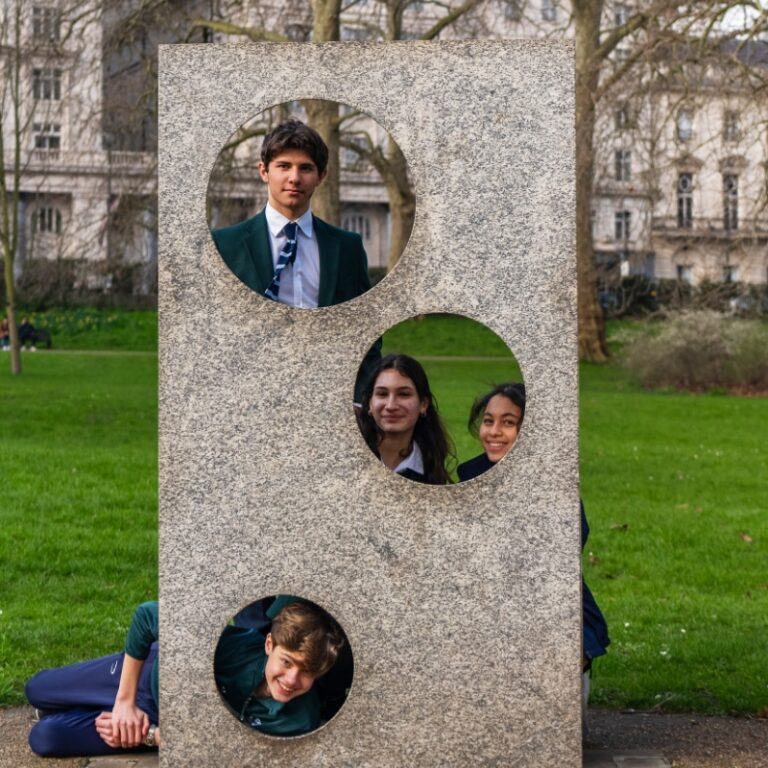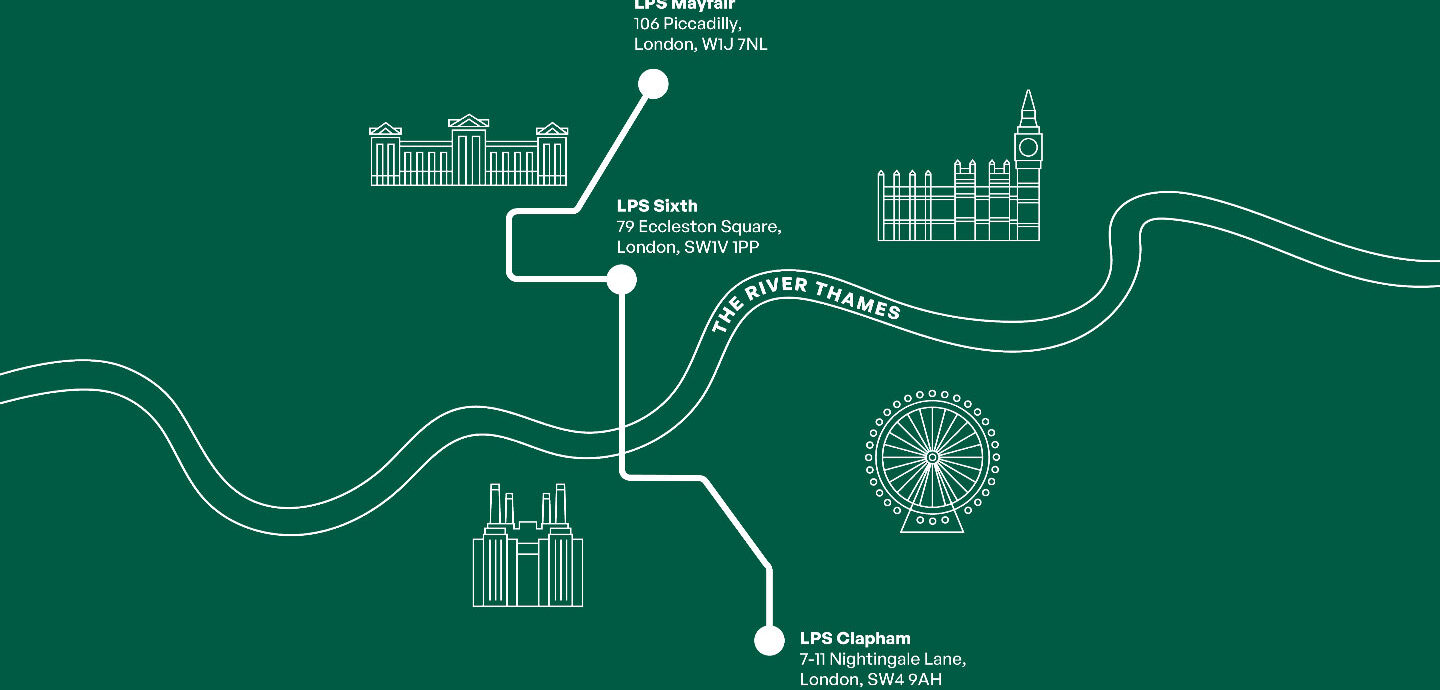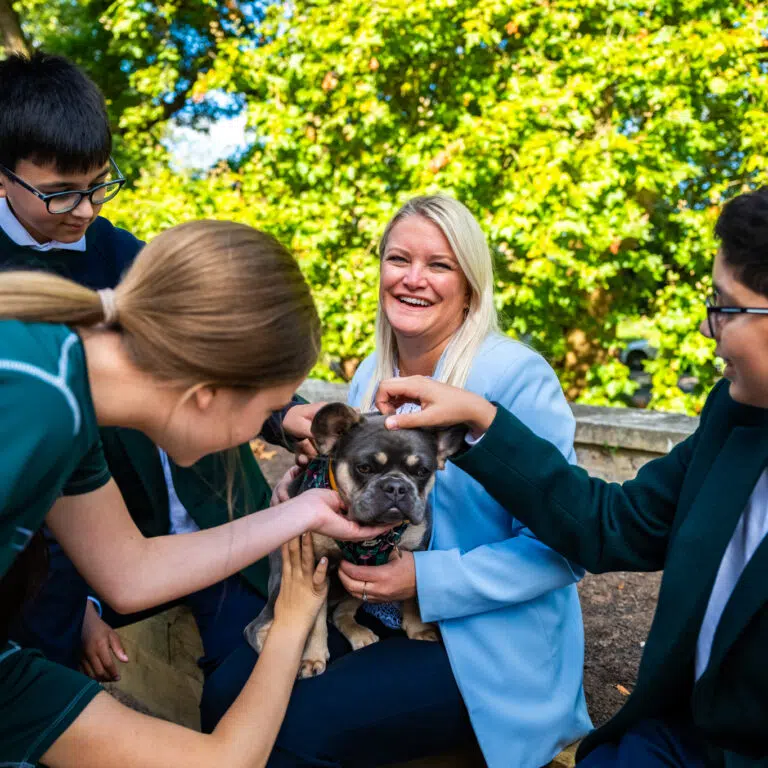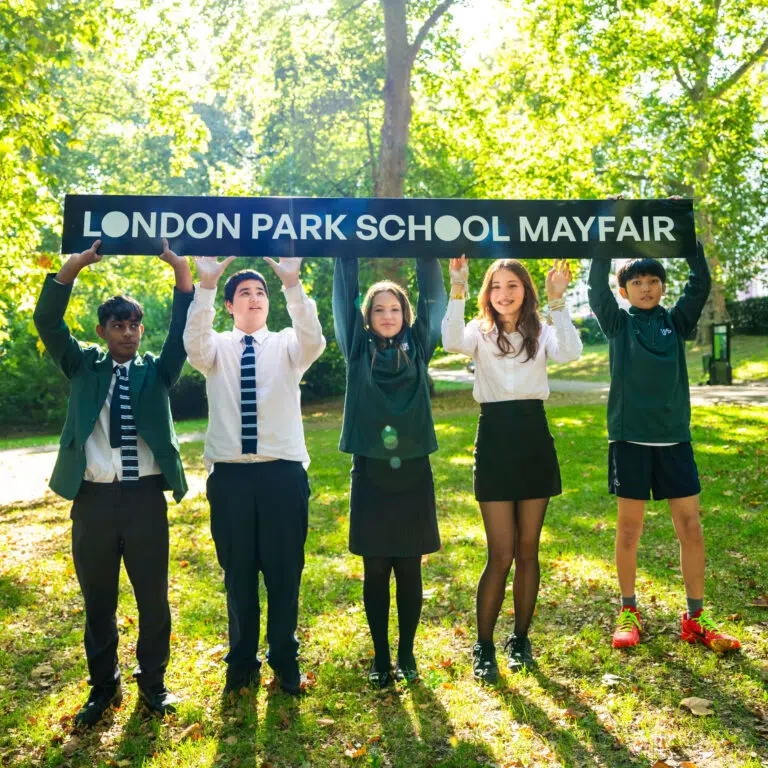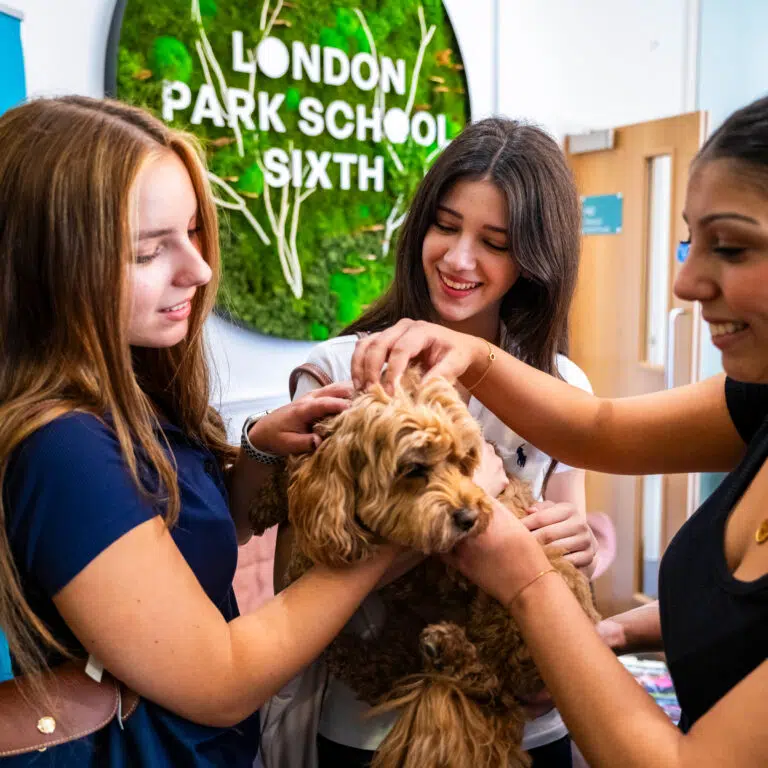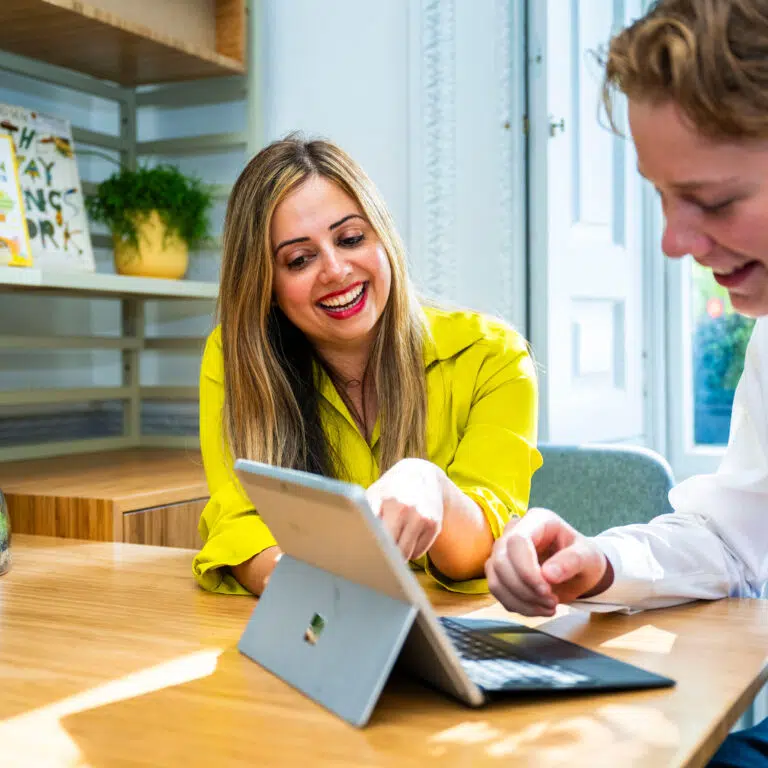Set amidst some of the most iconic areas of London’s rich landscape – Clapham, Mayfair and Belgravia – LPS Clapham, LPS Mayfair, LPS Sixth and LPS Hybrid are testament to London’s creativity, innovation and diversity, whilst embracing its beauty and heritage.
Each site and offer is testament to the power of a smaller school; one that provides students with big picture thinking, strong support and great results – all stemming from a community that embraces innovation and opportunity.
We offer high quality teaching in a more intimate learning environment that’s focused on personal progression and growth. We approach teaching with the future front of mind.
We know that exams matter, and we deliver excellent results – but we believe that education is about so much more than that. We nurture and develop our students’ abilities and give them the know-how to grab the world with both hands and realise their dreams.
By fuelling imaginations, empowering excellence and championing creativity, we aim to help a new generation of changemakers enter the world as thoughtful and articulate global citizens.
